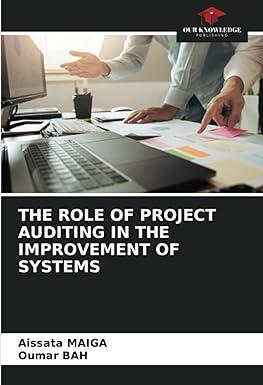Question
Question 2. Brian is starting a new business, his own bakery, and would like your advice. He recently finished an apprenticeship with a large bakery
Question 2.
Brian is starting a new business, his own bakery, and would like your advice. He recently finished an apprenticeship with a large bakery chain that specialised in bread production, baking standard white loaves and assorted varieties of popular breads such as sourdough and rye breads. Brians business will be a small-scale operation compared with the large bakery where he completed his apprenticeship. His business will specialise in cake production rather than breads as he does not feel he can compete with the larger companies for a share of the bread market. He wants to specialise in decorated cakes, Danish pastries and small tartlets. Brians new bakery is close to the central business district and he hopes to increase his daily cash flow by capturing lunchtime trade from office workers by selling freshly made sandwiches. Brian believes there is a ready and reasonably large market for his products.
Brian was not involved in the operational management of the bakery during his apprenticeship and is not sure what information he needs to ensure his investment is successful. He has spent most of his life savings on starting his business, fitting out his premises, purchasing equipment and supplies and hiring two assistants. He has decided that instead of paying an accountant to set up a cost management system for him, he will base his system on the system adopted by the large company he did his apprenticeship with. He feels that all he would need would be a cash statement each week to show him what his receipts and payments are, and an annual set of accounts to make sure he is operating at a profit.
In order to ensure he covers his costs, Brian will follow the product costing strategy of the large bakery where they produced a variety of breads using highly automated processes. They treated flour as the direct cost in determining the cost of the different varieties of bread and all other costs were treated as indirect and allocated. Brian feels this system is simple and he would be able to emulate it easily. However, Brians bakery produces cakes, pastries and tartlets that use processes that cannot easily be standardised and automated, they require specialised labour skills.
Required:
Brian is relying on annual financial accounts and a weekly analysis of cash flows to give him information that helps him stay in business for the long term. Brian is trying to ensure his pricing and cost-management strategies are appropriate by adopting the cost management system used in the successful large bakery. Do you agree with Brians approach?
Discuss the following issues in your answer:
Will Brians system meet the objectives of an effective cost management system? (5 marks)
Brian is relying on the product costing method adopted by a large firm along with financial feedback. What are the strengths and weaknesses of these approaches? (10 marks)
Step by Step Solution
There are 3 Steps involved in it
Step: 1

Get Instant Access to Expert-Tailored Solutions
See step-by-step solutions with expert insights and AI powered tools for academic success
Step: 2

Step: 3

Ace Your Homework with AI
Get the answers you need in no time with our AI-driven, step-by-step assistance
Get Started


